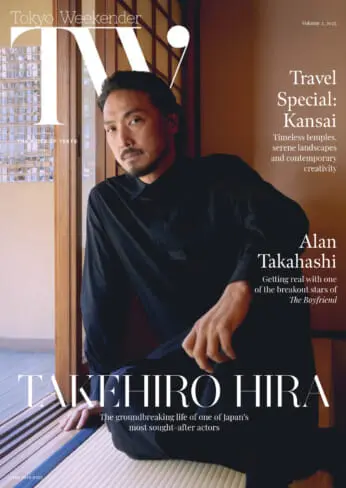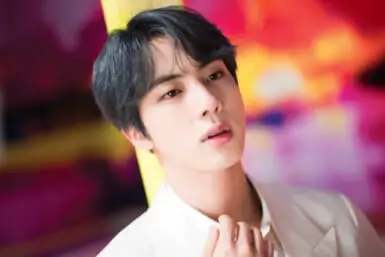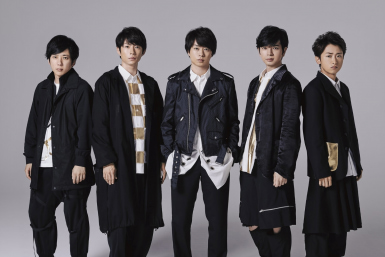James Blake had Fuji Rock in raptures in 2012 and returns to Japan to play two Tokyo dates (an extra was added by popular demand) before hitting Nagoya and Osaka, all in one week… His new album is getting him even more acclaim than the first, but where did it all start for the 24-year-old Englishman?
by Kyle Mullin
Amongst the clinking of glasses, rattling of utensils and hum of idle chatter, an equally disjointed rhythm grew to the point of distracting the diners. It was supposed to be background music, but James Blake wouldn’t let it fade into the periphery, at least not without bringing it to the forefront first.
“I was playing fairly weird music, because I didn’t want to sit there and play standards,” Blake— the lauded electronic artist who released his eponymous Mercury Music Prize nominated debut in 2011 and followed it up with the even more beloved Overgrown this year— says in a recent phone interview of his early gigs as a restaurant pianist.
Now that he’s attained a taste of success, and can afford to dine at the restaurants whose patrons he used perform for, Blake makes sure to go up and chat with any pianists attempting to slog through an evening.
“It’s a rarity to see these days, so when I do see a pianist playing in a restaurant I make sure to say hello, acknowledge him and say that I like what he’s playing. Even if it’s terrible,” Blake says with a dry chuckle that aptly suits his deep, husky voice. He then elaborated on his empathy for struggling diner performers: “The guy’s sitting there, and of course he’s getting paid and whatever, and there are people who have to do worse jobs, but it would probably make his day if you acknowledge what he’s doing.”
When he held that job, Blake couldn’t help but indulge his creative side:
“I don’t like playing loads of really well known tunes. I just wanted to improvise,” he says of bucking against what he saw as dull set lists. “And because of that I was pretty much unsuitable for the job. I’m not very good at learning a repertoire and rolling it off so people can hum along. It wasn’t my idea of fun.”
In a way that’s quite ironic. While Blake did indeed write most of the throbbing, introspective dubstep on that first album, its biggest hit happened to be one he didn’t pen—a skeletal electro cover of Feist’s “Limit to Your Love” that featured a magnetically wobbling bassline.
While fans fawned over the song, one of Blake’s biggest mentors shrugged the praise off – his father, James Litherland. A jazz-guitarist who played in the avant-garde troupe Coliseum in the 1970s, Litherland bluntly advised his son to “Stop borrowing,” according to a recent interview with The Guardian. Blake’s father also told him, “You want the big moments at your gigs to be your moments.”
“I immediately reacted to that,” Blake says, before pointing out that he also retooled and added lyrics to a tune originally written by his father, The Wilhelm Scream, on another of his debut’s highlights. “So I sat down to write my own songs after that, songs that were unique to me. But it wasn’t just about writing their notes or measurements. Making them retrograde was the goal, making my confessions. I wasn’t trying to broaden my work, I wanted to make something that pierced more.”
“If I’m going to collaborate with someone, it’s nice to sort of hang out with them … It’s good to feel like you’re making a passable connection, not just an A&R connection.”
That sharpened focus is especially apparent on one of Overgrown’s key tracks, Life Round Here, on which he all but murmurs “Part time love is the life round here.” Blake says the song was inspired by the woman he’s currently involved with, and the way the pair desperately savour spare moments between gigs.
“It’s about a long distance relationship,” Blake says, referencing his own sometimes-frustrating romance with a fellow musician who tours almost as frequently as he. “The song is about the moments when someone leaves, and you have this slight feeling of disenfranchisement. No that’s the wrong word. It’s disappointment with what the situation is, disappointment that you can’t see enough (of) someone.”
And while their hectic performance schedules may keep them apart, Blake says the fact they share the same troubadour careers is also what keeps them together. He adds that a partner who is unfamiliar with a songwriter’s life on the road would be far less patient. As Blake puts it, quite simply, “We’re on equal footing.”
That longing for a lasting connection was not only the driving voice behind Blake’s sophomore album— it’s also been the key to his best collaborations. Another fan favorite from Overgrown is the meditative “Take a Fall For Me,” which features shared production and a guest verse from mixing board guru RZA of The Wu-Tang Clan.
Such a pairing may seem like a dream come true for Blake. After all, the hip-hop vet’s gruffly aggressive yet lushly soul sampling beats were a mainstay in the 1990s, appearing on the Wu-Tang’s early releases and solo projects by the troupe’s members, Method Man, Raekwon and Ghostface Killah. But RZA didn’t impart any wisdom on Blake – in fact, the two didn’t even speak.
“We just did it over email,” Blake tells me, adding that he hopes to form a more extensive partnership with the Wu-Tang mastermind in the future. “I just sent him a beat, and he almost immediately replied. The whole production was done before he rapped on it.”
“It was a ridiculous exception,” Blake added about his long distance work with RZA. “If I’m going to collaborate with someone, then it’s nice to sort of hang out with them. If we get on then the music’s going to be good, and if we don’t get on I wouldn’t even start making music with them. It’s good to feel like you’re making a passable connection, not just an A&R connection.”
He now avoids any such projects coordinated by record labels, or gigs that are financially aimed.
“I once did a corporate show. I didn’t feel like anyone was listening. It just felt fucking pointless, basically,” Blake says, before comparing that to his current tour, where “every show feels like a resounding success.”
Blake attributes that success to a single quintessential element, the same factor that always makes or breaks his music. It’s the reason why his online only RZA collaboration felt lackluster, why he wrote a whole album based on the pangs of a transcontinental romance, and why he wanted to infuse his songs with more original ideas that were all his own.
It’s also why he was so ill-suited to sitting in the corner of a restaurant, plinking away at hollowed nostalgia. He never wanted to play standards, be away from his girl or collaborate via a router. He wants the real thing, because the spark of true contact is electrifyingly bright – and it illuminates the true difference between those early restaurant gigs and the sold out shows he plays now.
Or, as he puts it: “There’s a massive disconnect between the pianist and everyone else in the room. Whereas now, with what I do, there’s a connection being made everywhere in the room.”
James Blake plays two shows at Studio Coast, on June 4 and 5. For more info and to buy tickets, see http://smash-jpn.com
Kyle Mullin is a roaming rock journalist who has contributed to music mags around the world. You can read his interviews with Iggy Pop, David Byrne and St. Vincent, Brian Wilson and others at kylelawrence.wordpress.com He spoke with Japandroids and Rufus Wainwright for Tokyo Weekender in February and March this year.









